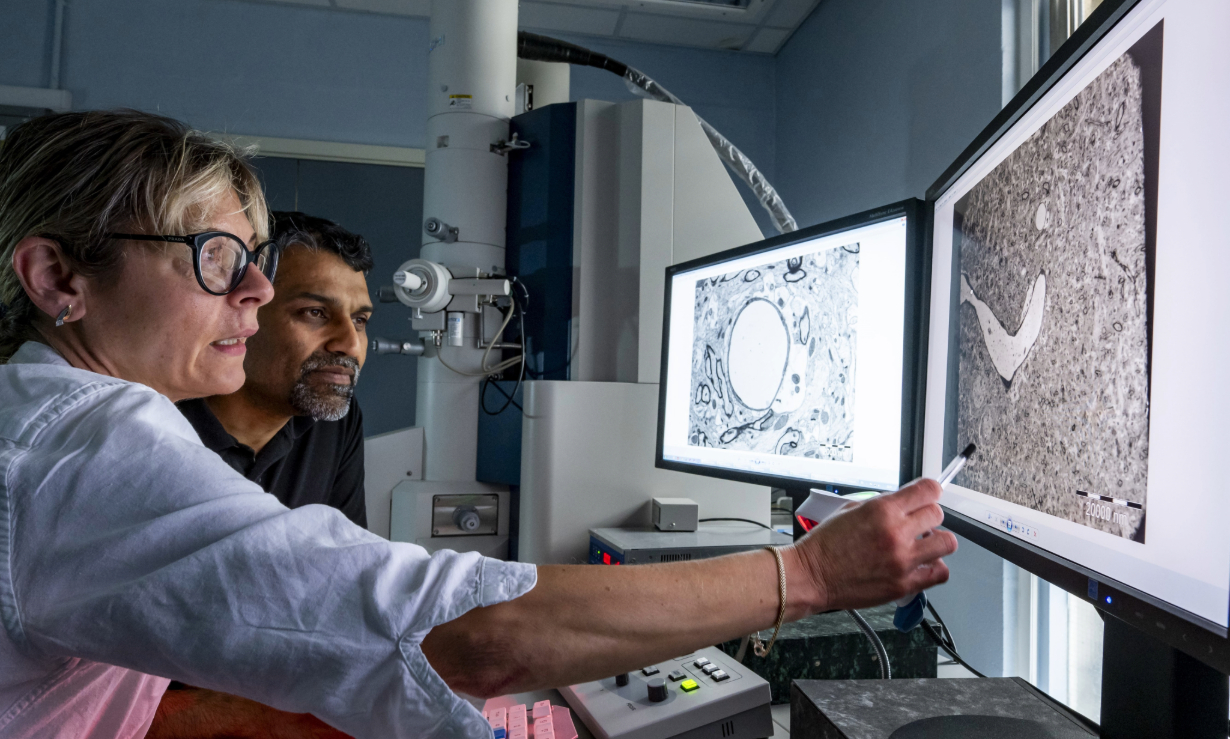By the time a patient begins presenting with dementia symptoms, the disease has already been doing damage to the brain for 20 years. Most testing offers imprecise results. With no accurate way to diagnose dementia, it is impossible to create specific cures.
10 years ago, Dr Roxi Carare was determined to find a solution. Her investigations led her to the laboratory of chemist Professor Sumeet Mahajan and his remarkable new Raman spectroscopy imaging technique.
Together, they can explore the human brain without compromising it in any way: no injections, no dyes. Instead, Raman spectroscopy involves shining a laser on a sample and observing the patterns of vibrating molecules.
Raman spectroscopy enabled us to identify the brain’s self-cleaning system, called Intramural Periarterial Drainage (IPAD) and make incredible advances in understanding dementia and the build-up of amyloids that cause it. This discovery is now leading us to possible new treatments aimed at improving this self-cleaning mechanism.
Now, Roxi and Sumeet are looking for biomarkers so we can find the disease earlier. The aim is to be able to test for dementia with a simple nasal swab.
“Early diagnosis, in the form of a non-invasive test, made available in any GP’s surgery, would be a game-changer for dementia and could allow future treatments to be prescribed before the disease takes hold” says Roxi.
“Detected at 40, as part of a standard check-up, we could save minds and lives.”
